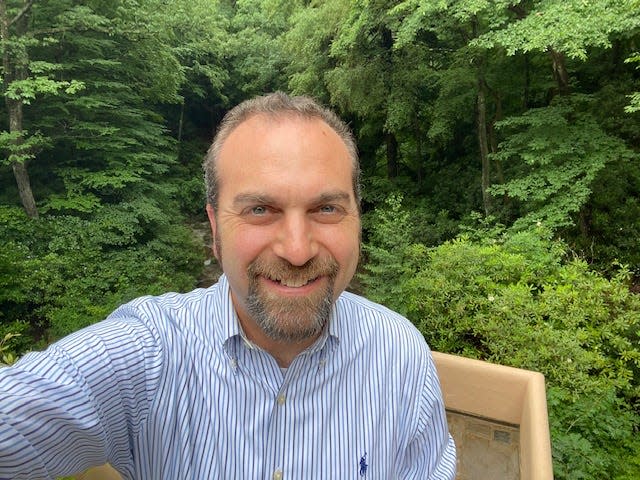Keeping the faith: In abortion debate, we must be true to our outermost parts

Perhaps not surprisingly, since the leak of a draft opinion of the United States Supreme Court indicating an upcoming decision to overturn Roe v. Wade, all of my public words shared with my congregation have focused on this issue. I have written, I have spoken, and now I share with this wider audience some of these same thoughts.
For a long time, I’ve been frustrated with the emblem of Brandeis University, my alma matter. In the middle of the emblem is the Hebrew word “emet,” which means truth, and therefore connects well to the phrase on the edge of the emblem, “Truth Even Unto Its Innermost Parts.”
It is a lovely sentiment, but I have always thought that phrase to be inaccurate and that it should say instead, “Truth Even Unto Its Outermost Parts.” It seems to me that the innermost parts of us are the easiest to keep truthful. Ultimately, we are who we are on the inside.
It is the outermost parts of us, those furthest away from our core, that are the most challenging to control. By trying to be truthful even unto our outermost parts we would be saying that we strive for all our actions to be consistent with our innermost values, a challenge that is worth undertaking now more than ever.
The leak left so many of us reeling and with a fresh wave of worry for our collective future. I am one of those people.
I am worried for my daughters and for the right of all women to have control over their own bodies. I am worried about the future of our democracy and the ways this decision, should it come to fruition, will set us even further back as a country.
I am worried for the future of the U.S. Supreme Court, which will not function as it was intended in a world where drafts of potential decisions are leaked to the public. And I am worried because this potential decision is yet another example of blatant hypocrisy and the inability of too many to be truthful even to their innermost parts.
There have been many words written, many memes shared these past few days. The ones that have struck me the most are the ones that call out the inconsistency of an ideology that claims to protect life at conception and yet takes no steps to protect that same life once it has come into the world.
To quote two such posts: “If it was about babies, we’d have excellent and free universal maternal care. You wouldn’t be charged a cent to give birth, no matter how complicated your delivery was” and “’Pro-Life’ would be 20 Sandy Hook Students starting High School.’”
I make no claims of perfection, and each of us leads lives of inconsistency. I know that, and I own it for myself.
What I do know to be consistently true is that Jewish tradition places priority on the life of the mother over the life of fetus and that in a world that is concerned about mental health, we cannot discount the potential psychological pain and anguish that might be suffered by a pregnant woman.
I know, to my innermost and outermost parts, that it is not for me to decide for someone else what the right decision is for them with regard to their body.
I seriously doubt that Brandeis will ever change its emblem, but what we can change is how we act both as individuals and as a community. May this be a time that we each consider how we represent our truths and values.
God instructs us in the book of Leviticus to be holy because God is holy. We are more than capable of being holy and showing truth even to our innermost and outermost parts.
Rabbi Hillel Skolnik is senior rabbi at Congregation Tifereth Israel on the East Side.
Keeping the Faith is a column featuring the perspectives of a variety of faith leaders from the Columbus area.
This article originally appeared on The Columbus Dispatch: Column: A faith leader worries as world awaits verdict on Roe v. Wade

